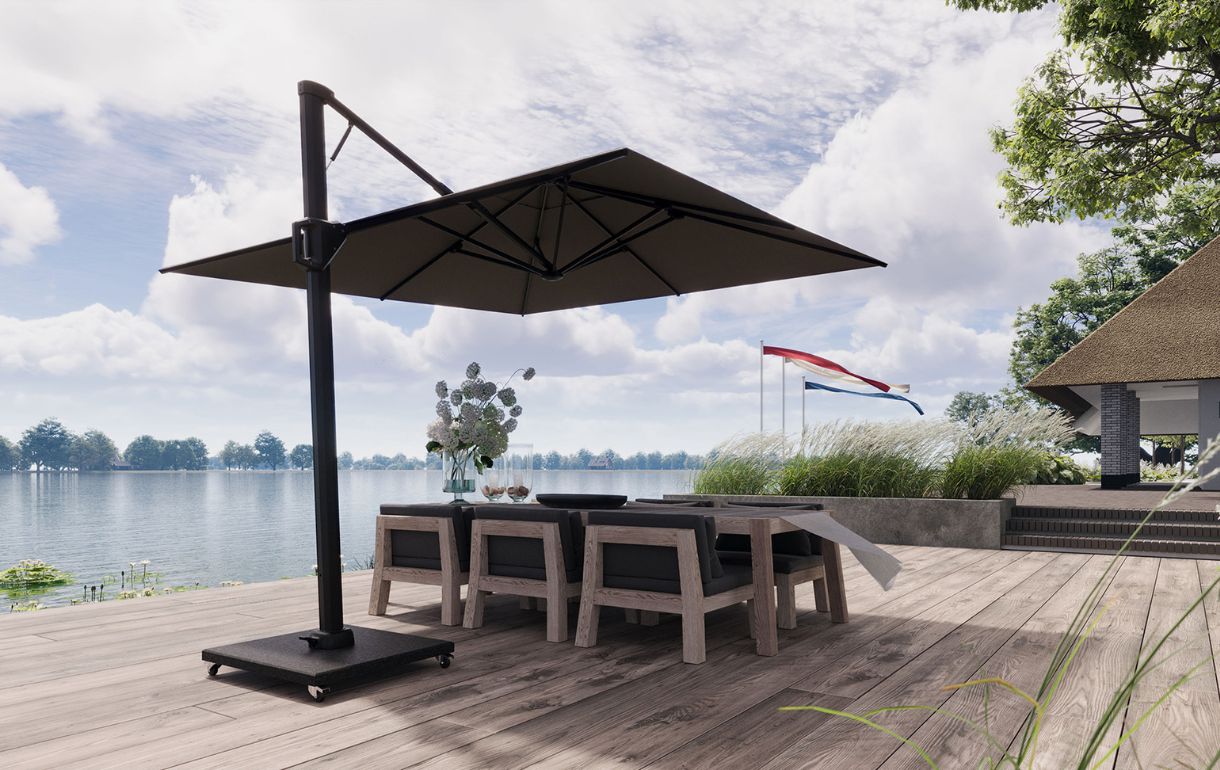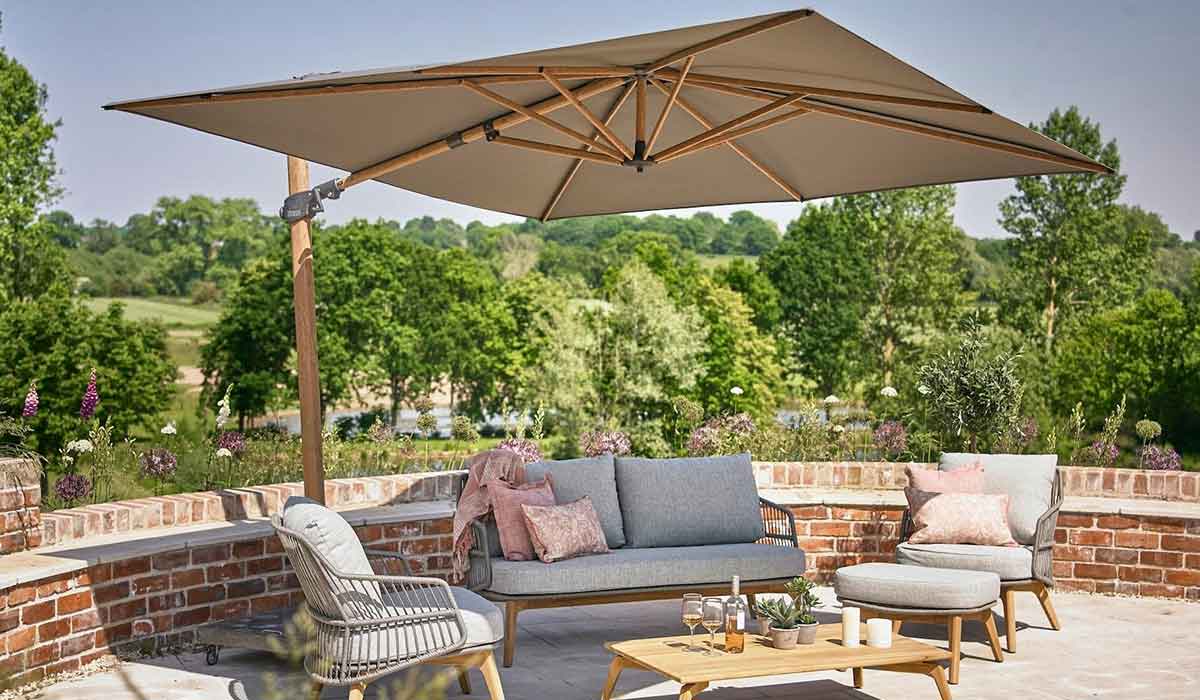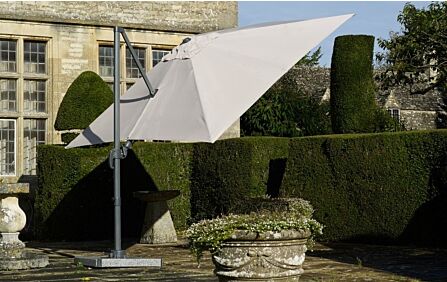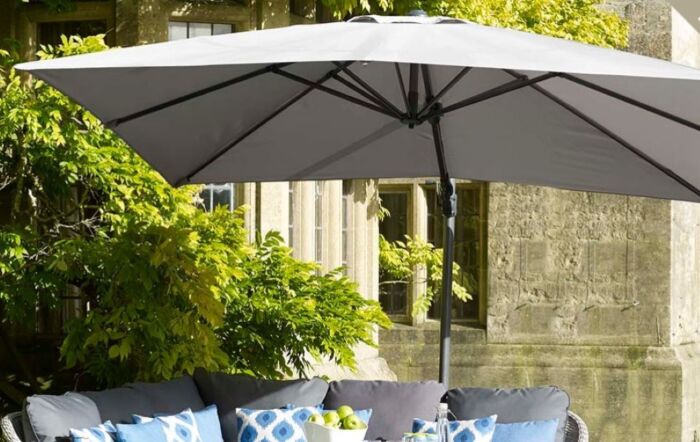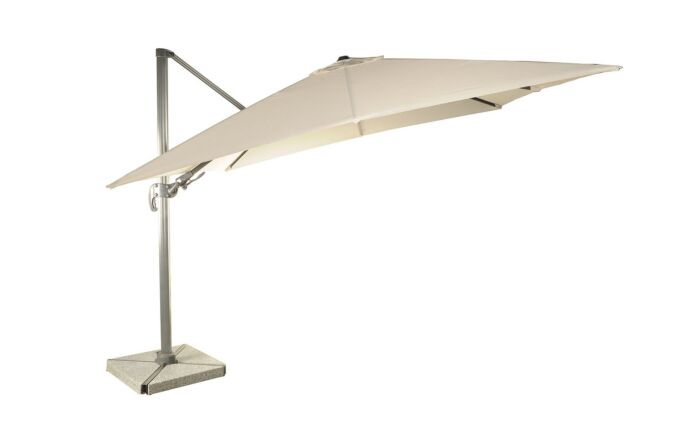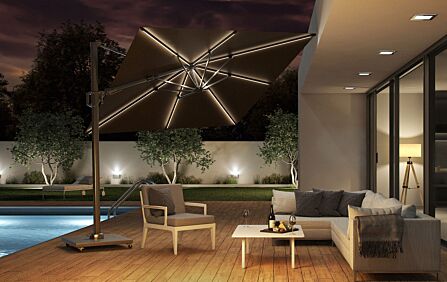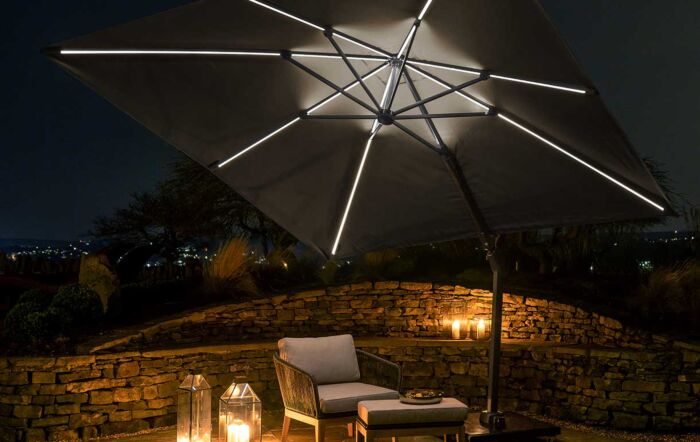How To Use A Cantilever Parasol
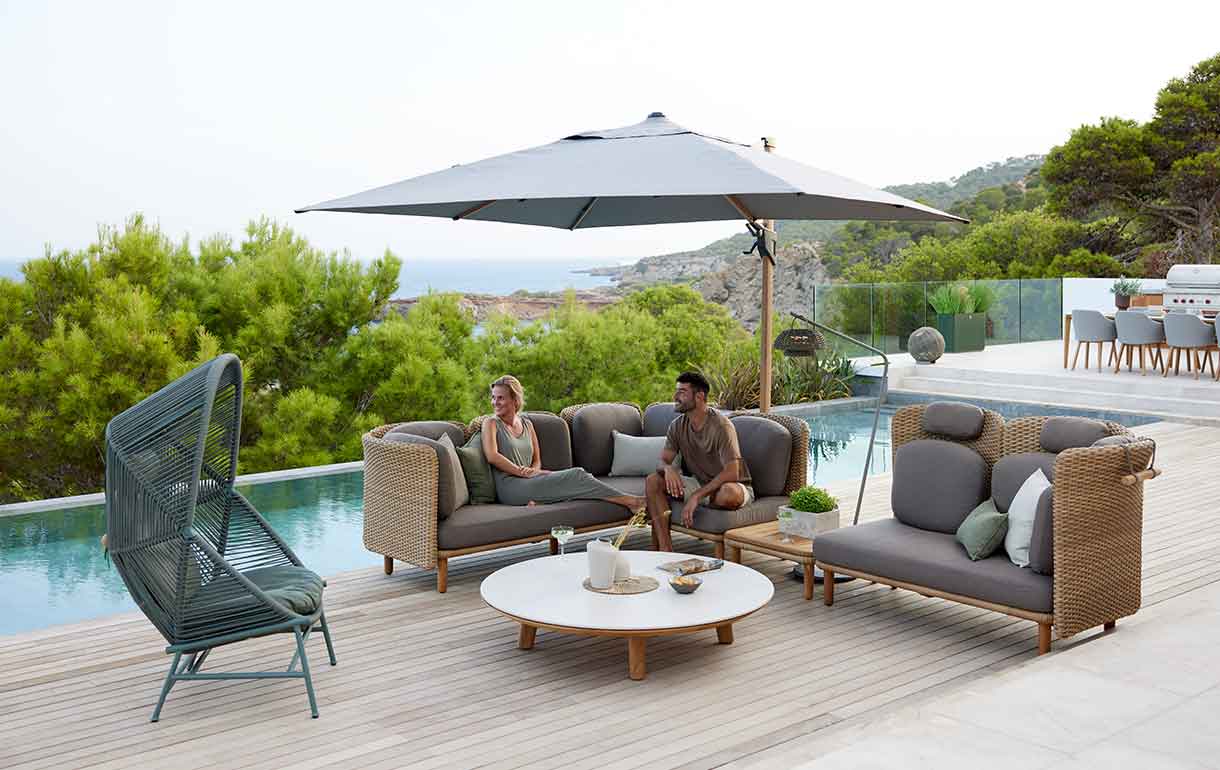
Updated: 04/04/25
Whether you're lounging on your garden sofa, hosting a barbecue, or simply seeking respite from the scorching sun, a cantilever parasol can be your ultimate ally. However, if you're new to cantilever parasols, they might initially seem challenging. But after going through our guide, you'll become an expert in no time. Most cantilever parasols operate similarly and feature many of the same mechanisms.
While browsing for a parasol, you might encounter unfamiliar terms. For instance, you might wonder about the distinction between T1 and T2 parasols. In this blog post, we'll delve into this and other related topics.
By the end of this guide you’ll be able to manoeuvre your parasol with ease. Let’s get to it!
How do I use a Cantilever Parasol?
Once you know what to do, cantilever parasols are easy to use. Many parasols feature similar mechanisms, meaning that they all work in similar ways. The only difference might be aesthetics or the position of a handle.
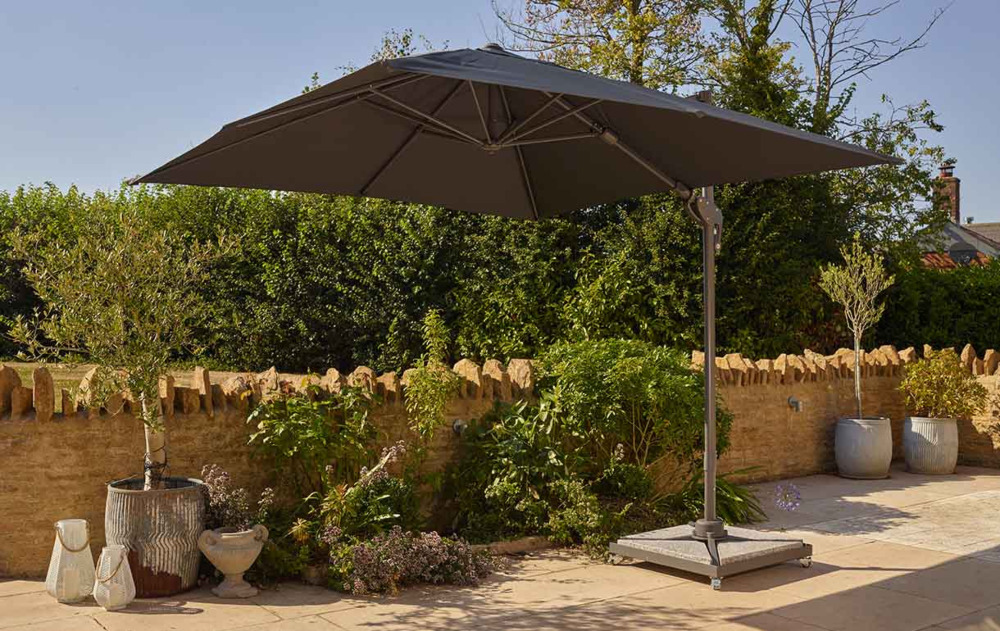
Putting up the parasol
To put up your parasol locate the handle used to wind the canopy open. This can be found on the side of the parasol pole - as shown in the image below. Secondly, find the handle at the back of the parasol pole.
You will need to hold and squeeze the handle at the back of the parasol and push this upwards to the desired position. When you release the handle it needs to be on one of the circular holes on the back of the pole, listen out for a clicking sound.
Then begin to wind the other handle, found on the side of the pole. This will move in a clockwise direction.
Tilting the parasol
When tilting the parasol left and right you will need to locate a handle or lever. This can be found on the centre rib nearest to the parasol pole. The handle will either pull towards you or push out towards the canopy. Then all you need to do is move the handle left or right and this will tilt the canopy.
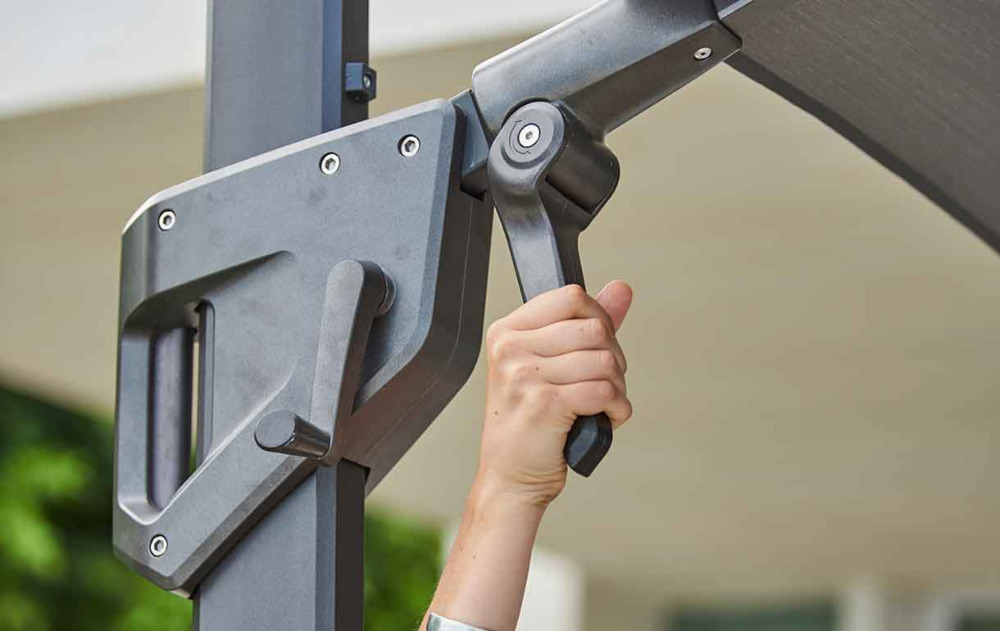
If your garden parasol can tilt up and down you will have used this handle when opening the parasol. At the back of the parasol pole you will see a handle or grip which you can hold and push inwards. Then on the back of the parasol pole locate the circular holes, there will be several on the back of the pole. To tilt the parasol you will need to push the handle up or down, making sure to lock this into place by releasing the handle on one of the holes. You will know it is in place when you hear a clicking sound, do not release the handle until you hear this sound.
Rotating the parasol
To rotate the parasol it is easier if you can step on the base. On the bottom of the parasol pole you should see a pedal. Step on the pedal and use the pole or the canopy to rotate the parasol 360 degrees. Once you have the parasol in position step off the pedal.
Closing the parasol
Closing the parasol is just like opening the parasol but in reverse! The first step is to wind the handle and close the canopy.
Secondly, use the handle at the back of the parasol and pull the canopy all the way down until it is in the upright position shown below.
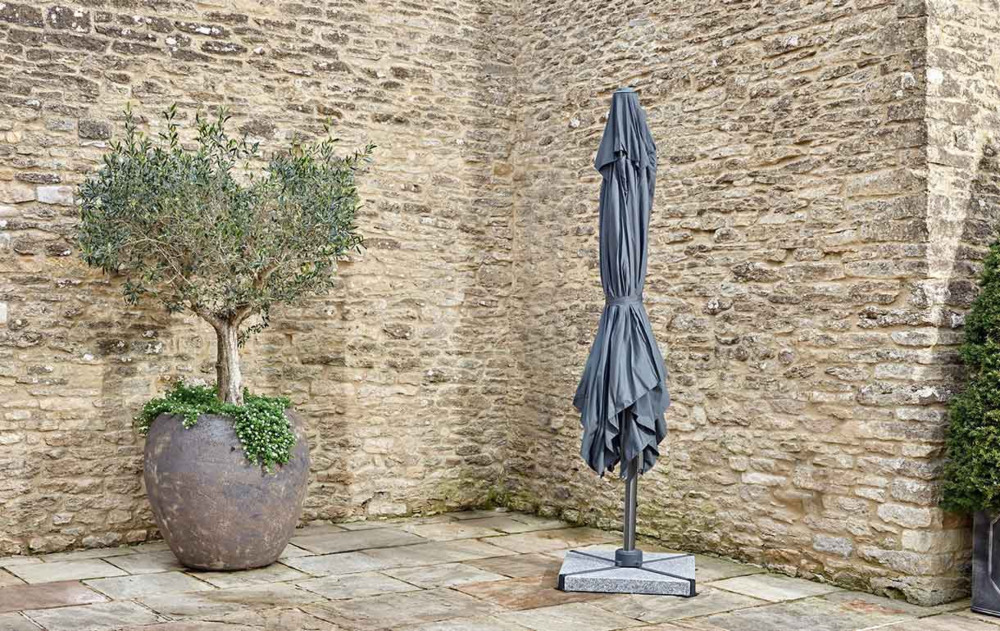
Take a look at this video from our Newcastle team on how to use a cantilever parasol. The video shows the Bramblecrest Lichfield 2.7m parasol.
What is the difference between a T1 and a T2 parasol?
You might have come across the phrases “T1 parasol” or “T2 parasol” and not know what they mean. Not to worry our customers often ask us to explain the difference between these two parasols. There is one difference and that is in how it tilts.
T1 Parasol:
T1 parasols are cantilever parasols that can rotate 360 degrees around the parasol pole. They can also tilt up and down.
T2 Parasol:
T2 parasols can do everything a T1 parasol can do with the bonus of tilting left and right. This means that a T2 parasol can rotate 360 degrees, tilt left and right and tilt up and down.
As you can see the difference between these two parasols is all in the tilting. Simply put one can tilt left and right and the other can’t. This small difference can be a big deal when it comes to choosing the right parasol for your space.
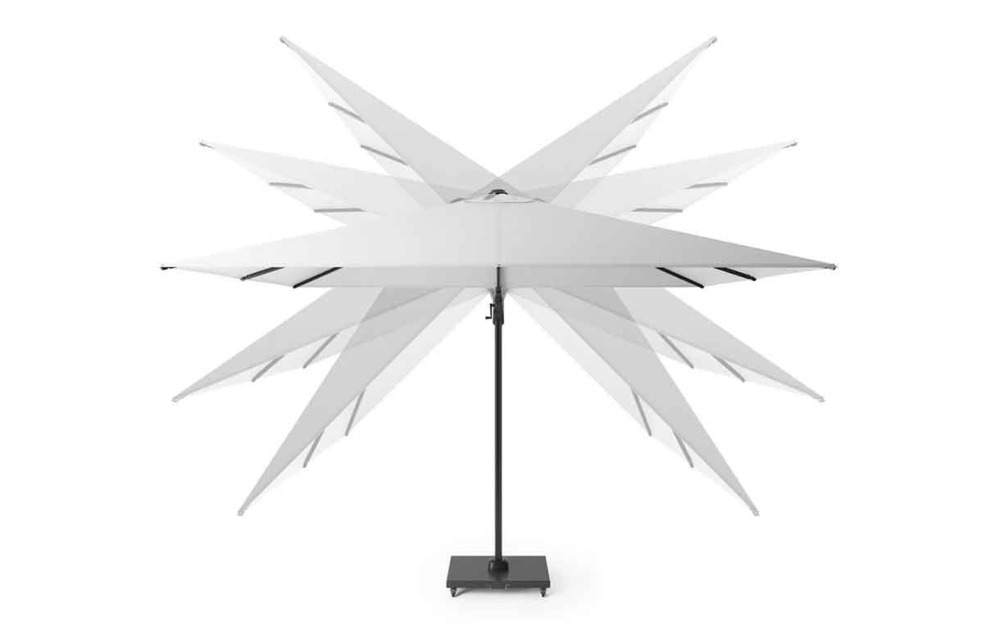
Choosing a T2 parasol gives you more flexibility on where you place your parasol and makes it easier for you to protect yourself from the sun.
How do I use my parasol lights?
Some cantilever parasols come with handy LED lights built into the spoke. This feature allows you to enjoy your garden for longer as it provides soft lighting. Most parasols with LED lights work in the same way.
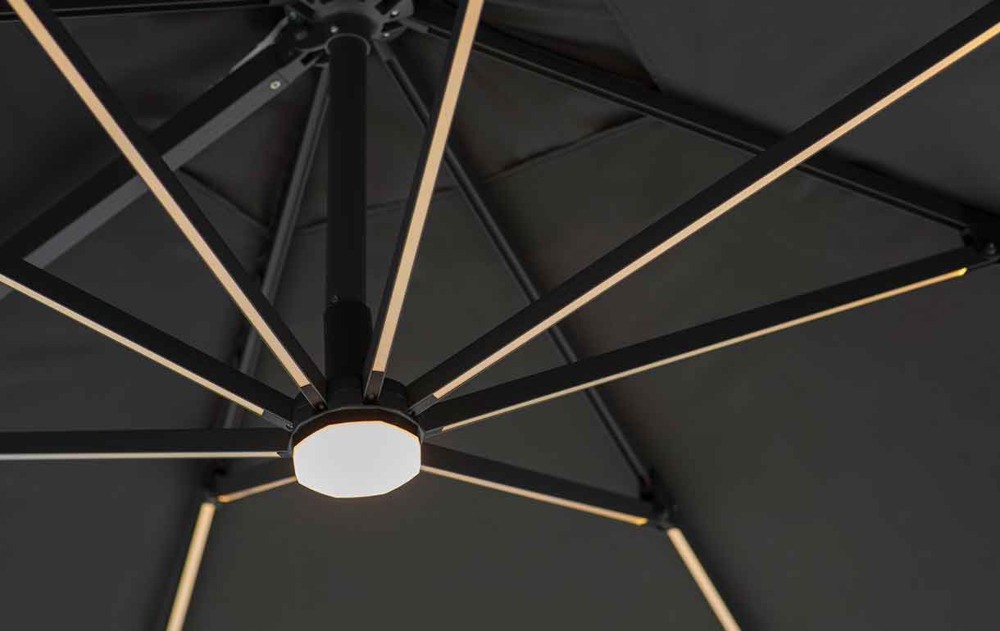
Some LED cantilever parasols have lights on the spokes and others have lights on both the spokes and the centre of the parasol.
They will include a small battery pack, which is attached to the parasol itself usually on one of the spokes closest to the parasol pole. The pack can be attached and detached when needed. When you need to charge the battery pack simply remove it from the holder and take it indoors.
Included in your delivery will be a cable to charge the battery pack, the cable can be fitted into most mobile phone charger plugs. The plug must be compatible with a standard USB cable, like what you use to charge older model iPhones.
Once the pack is fully charged you can then reattach it to the parasol and start to use the lights. When operating the lights the on/off button will be in one of two places. You can find this button either on the battery pack itself or on the parasol pole.
To turn the lights on simply press the power button, this will allow you to turn the LED lights on and off.
Different types of bases
Most cantilever parasols utilise a granite base due to the weight, it is stable and strong enough to keep the canopy secure. However, there are a couple of other bases on the market such as an in-ground parasol base.
Wheeled granite base
Wheeled bases are extremely popular amongst our customers and the reason is simple. They are so easy to move around the garden. Our wheeled granite base weighs 90kg in total - it ticks every box. Not only is it heavy enough to support a cantilever parasol but it is easy to move around. If you’re looking for convenience we would recommend a granite parasol base with wheels.
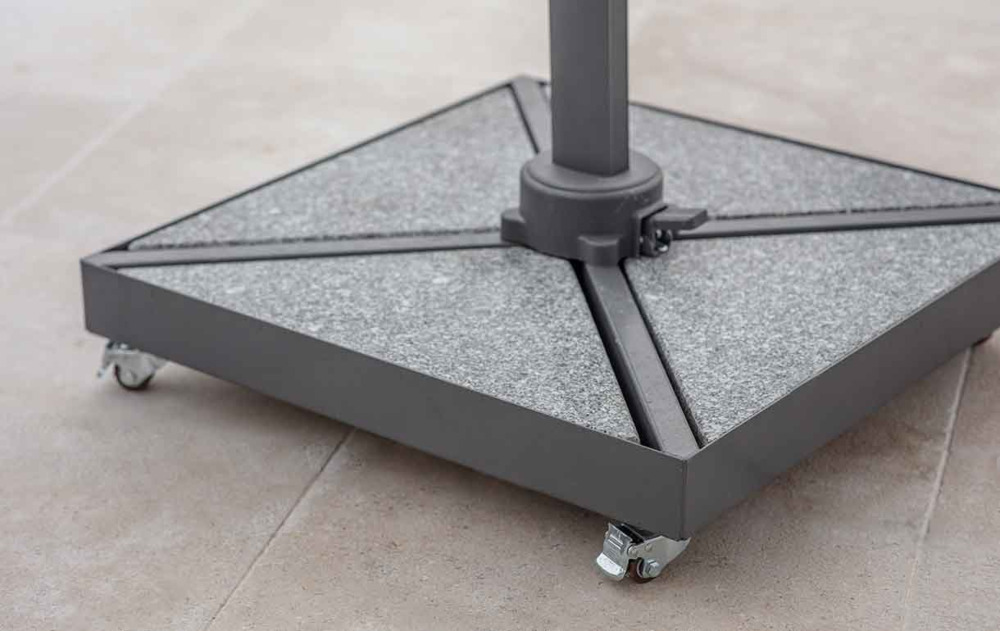
Granite triangle base
Granite is ideal for parasols as it is very sturdy. The Bramblecrest granite triangle base is composed of four granite triangles, each one weighing 25kg. This means your base weighs 100kg in total, perfect for weighing down a cantilever parasol.
Sand/water fill base
Sand or water fill bases are plastic bases which come delivered empty. They need to be filled with either sand or water, we would recommend using sand as water will evaporate over time. This base featured on the Gloucester parasol and comes with two handy wheels on the back so you can move the parasol if needed.
In-ground base
In-ground bases are a great space saving hack, they don’t require as much space as a granite base. They need to be dug in to keep the parasol stable. There are a few options available and some will require concrete whereas others do not. They are extremely stable and suitable for parasols from 3m up to 3.5m.
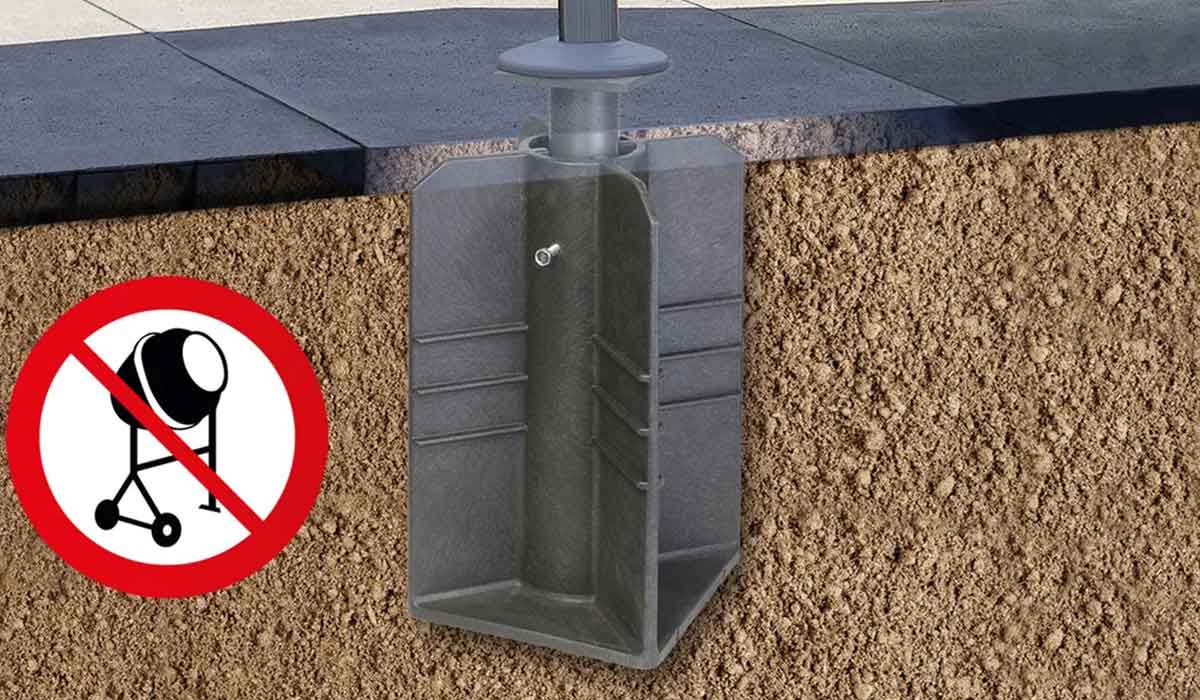
Can I use my parasol in windy conditions?
No, please do not use your cantilever parasol in windy conditions. Parasols are not designed to be used during high winds, this could cause them to fall over and potentially damage your garden or even worse you.
During light winds you will notice the parasol wobbling or swaying slightly, this is to counteract the wind and prevent the parasol from falling over. Once the wind picks up you will need to close your parasol. Read more about how to weigh down your parasol here.
Caring for my parasol
Garden parasols are an investment so it is important to protect them. Keeping your parasol clean will help your parasol look newer for longer and last longer. They are very easy to care for we recommend using non-abrasive products and a dry soft brush or cloth.
To find out more about how to care for your parasol click here.
From providing much-needed shade on sunny days to adding a touch of elegance to your outdoor space, parasols are indispensable. By following the tips and techniques outlined in this guide, you're now equipped to harness the full potential of your cantilever parasol with confidence and ease.
--------------------
Have further questions about how to use your parasol? Our friendly, knowledgeable team are always on hand to help, just give us a call or visit one of our showrooms in Wakefield or Newcastle.
About the Author

Dave Sadler is a garden parasol expert with a passion for outdoor elegance and functional design. With years of experience in the garden furniture and parasol industry, he’s become a go-to expert on all things parasols - from choosing the perfect shade solution to seasonal styling tips.





